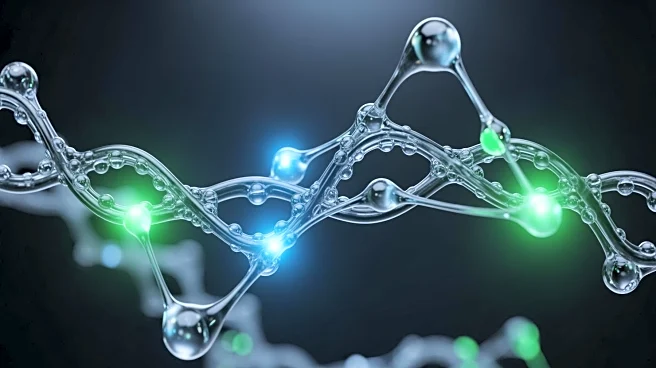What's Happening?
Researchers at Aarhus University have made a significant breakthrough in understanding how certain plants can survive without artificial nitrogen fertilizers. The study, published in Nature, reveals that
a genetic switch in plants allows them to form symbiotic relationships with nitrogen-fixing bacteria. This discovery could potentially reduce the reliance on artificial fertilizers for crops like wheat, maize, and rice. Currently, only a few plants, such as peas, clover, and beans, can naturally fix nitrogen from the air through symbiosis with bacteria. The researchers identified small changes in the plants' receptors that enable them to switch off their immune system and accept the beneficial bacteria. This ability is controlled by two amino acids in the plants' roots, which act as a receptor to determine whether the plant should defend itself or welcome the bacteria.
Why It's Important?
The implications of this discovery are profound for agriculture and environmental sustainability. Artificial fertilizers account for approximately 2% of the world's total energy consumption and contribute significantly to CO2 emissions. By enabling more crops to fix nitrogen naturally, the need for these fertilizers could be drastically reduced, leading to greener and more climate-friendly food production. This advancement could benefit farmers by lowering production costs and reducing environmental impact. Additionally, it could enhance food security by making crops more resilient and self-sufficient in nutrient acquisition.
What's Next?
The researchers successfully modified the plant Lotus japonicus and demonstrated the principle in barley. The next steps involve transferring this genetic modification to other major crops like wheat, corn, and rice. If successful, this could revolutionize agricultural practices by enabling these widely used crops to fix nitrogen themselves. However, further research is needed to identify other essential genetic keys to extend this capability to more crops. The scientific community is likely to focus on these efforts to achieve broader application and impact.
Beyond the Headlines
This discovery raises ethical and ecological considerations regarding genetic modification in agriculture. While the potential benefits are significant, there may be concerns about the long-term effects of altering plant genetics and the impact on ecosystems. The balance between technological advancement and natural biodiversity will be a critical discussion point as this research progresses.










